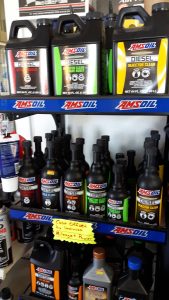Our Diesel Fuel Additives Will Save Your Fuel System and Add Performance Diesel fuel additives are the most overlooked motor maintenance item next to motor oil. An essential product that must be added to every tank. Many diesel drivers mistakenly think a fuel lubricant is okay every other tank. New diesel owners are not being […]
You are browsing archives for
Category: Fuel Additives
Ultra-low-sulfur diesel doesn’t provide
Ultra-low-sulfur diesel lacks Needed Lubricity Mark Nyholm | TECHNICAL MANAGER, HEAVY DUTY AND MECHANICAL R&D Fortunately, we have a simple solution. It feels like forever ago, but it’s only been 13 years since the U.S. Environmental Protection Agency (EPA) mandated reduced sulfur content in diesel fuel, in 2006. Boy, were people angry. They knew sulfur […]
The Cost of Owning a Diesel – This Produ
Diesel Fuel Additives – Not an Option in Diesel Ownership Years of reviewing the effects of modern diesel fuel, mechanical issues, costs and designs of injectors, pumps, failures keeps the topic of the misunderstood fuel additive fresh in mind. Impressive In The Field As an AMSOIL dealer, one product I rank in the top three […]
AMSOIL Quickshot® Offers a Simple Soluti
AMSOIL Quickshot® Offers a Simple Solution to Ethanol Problems One of our best sellers here in Sioux Falls. Keep it for your garage fuel tanks. Fights varnish, attacks deposits and stabilizes fuel in addition to the ethanol problem. Award winning product that – yes – ACTUALLY WORKS! Fuel maintenance is a big issue, whether you […]



